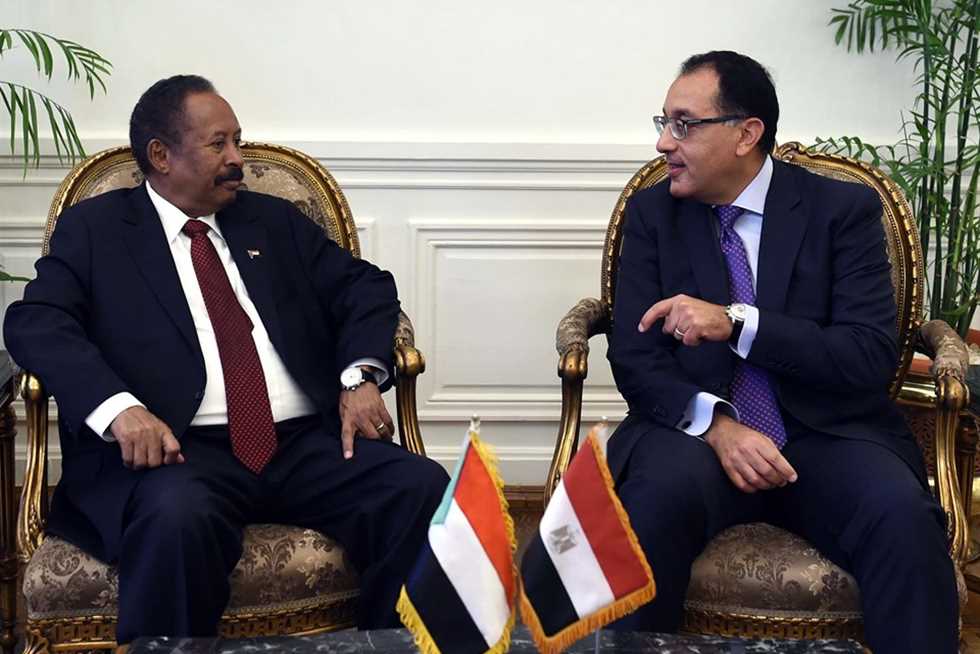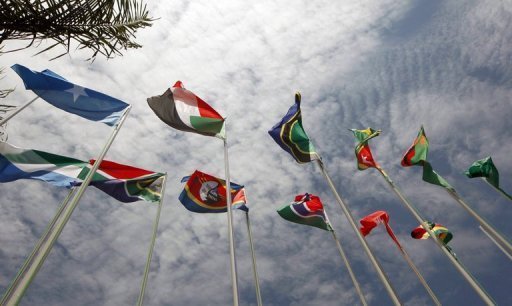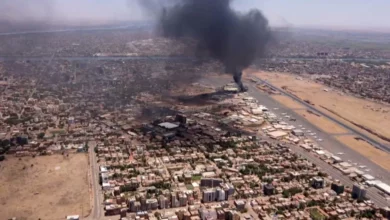
Cairo and Khartoum stressed the importance of negotiating to reach a binding agreement on filling and operating the Grand Ethiopian Renaissance Dam (GERD) in a way that preserves the rights and interests of the three countries.
A joint statement that followed talks held by Egyptian Prime Minister Mostafa Madbouly with his Sudanese counterpart in Khartoum on Saturday said that the two sides had discussed the GERD issue, and the importance of agreeing on an effective and binding mechanism for settling disputes, alongside a coordination mechanism between all involved countries.
Madbouly visited Sudan on Saturday, accompanied by a high-level delegation, in an official visit to discuss GERD.
The delegation includes the Ministers of Electricity and Renewable Energy, Water Resources and Irrigation, Health and Population, Trade and Industry, and officials from concerned authorities.
The Egyptian and Sudanese sides, headed by the prime ministers of both countries, held an expanded session regarding cooperation between the two nations on various areas. Madbouly also met the leaders of Sudan’s Sovereign Council.
Egypt on Monday had announced a one-week-long suspension of negotiations on the GERD.
The decision was made at the request of Sudan, so that it can complete internal consultations following Ethiopia’s insistence that it is seeking a non-binding agreement on the dam.
Egypt said that the Ethiopian Water Minister preempted the meeting of August 4 by sending a letter to his counterparts in Egypt and Sudan that contained draft guidelines and rules for filling the dam, but that did not include any operating rules or any elements that reflect the legal obligation of the agreement.
Egypt stated that the Ethiopian proposal contradicts what was agreed upon during the African Union Bureau Summit on July 21, as well as the results of the water ministers’ meeting on August 3.
The meetings of the second round of GERD negotiations began on July 27 under the auspices of the AU and in the presence of observers from the United States and the European Union, and experts of the African Union Commission. Its aim is to reach a binding agreement regarding the filling and operation of the dam. The meetings are based on the outcomes of an African Union presidential summit held on 21 July.
Egypt and Ethiopia have been in multiple rounds of negotiations over the dam during the past nine years, all of which have failed to reach a final agreement.
Egypt blames Ethiopia for the failure of negotiations.
Ethiopia’s Foreign Ministry announced late last month that it is not seeking a binding agreement with Egypt and Sudan on the contentious GERD that it is constructing on the Blue Nile river, the main tributary of the Nile river.
The Ethiopian Foreign Ministry’s spokesperson Dina Mufti said that his country is instead seeking a guiding agreement that can be modified as needed.
Egypt, which relies considerably on fresh water from the Nile, has voiced fears that the GERD would negatively impact the country’s water supply, especially in light of overpopulation fears, and has insisted that measures be put in place to protect downstream countries in case of drought during the dam’s filling process.
Ethiopia, on the other hand, has stressed the importance of the project to bolstering its economy, where more than half of the population currently lives without access to electricity.




